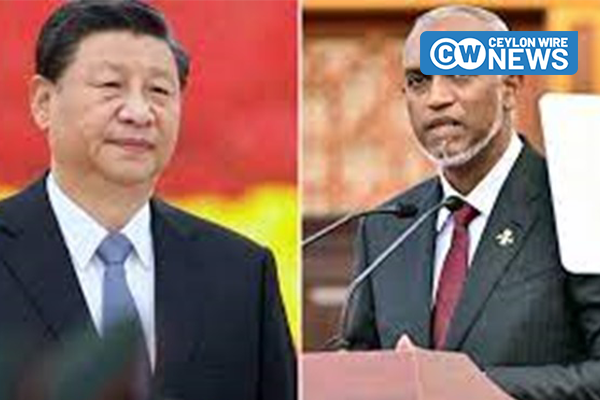The ascent of President Mohammad Muizzu in the Maldives has been marked by misplaced priorities and disoriented interests, particularly evident in the ‘India Out’ movement that dominated his electoral campaign. Regrettably, this approach has not only caused problems for the People’s National Congress (PNC) but has also brought about challenges for Muizzu himself. The combination of anti-India rhetoric, worsening employment rates, and economic turmoil has left the political leadership grappling with a series of crises.
Muizzu’s recent statement, announcing a halt to new development projects due to economic burdens, underscores the severity of the situation. Additionally, images of violence within the Maldives Parliament have further tarnished the country’s global image. However, the most pressing crisis appears to be the looming economic recession, for which President Muizzu’s administration seems unprepared.
In a revealing interview, a prominent US diplomat in South Asia disclosed that Washington is urging the Maldives to permit joint investments from India and the US to assess and stabilize the Maldivian economy. This initiative aims to prevent the Maldives from succumbing to economic distress comparable to other South Asian nations burdened by substantial Chinese debt.
Despite the collaborative offers from India and the US to rescue the Maldives from the impending economic recession, the current government remains aligned with Beijing. This allegiance showcases the extent of China’s influence over the ruling political party.
Maldives, in 2020 alone, received substantial financial support from the International Monetary Fund (IMF), with warnings in 2023 categorizing it as a high-risk nation for debt distress due to its deepening ties with China. Despite these alerts, the Maldives continues to seek finances from Beijing, evident in President Muizzu’s recent visit, resulting in agreements elevating bilateral ties and prioritizing projects under the Belt and Road Initiative (BRI).
However, the increasing reliance on China has raised concerns about a potential debt trap. International organizations have issued debt distress warnings against Maldives, with Beijing’s debt accounting for approximately 30% of the country’s total external debt.
Analysts argue that Maldives risks replicating the economic crises faced by Pakistan, Sri Lanka, and Bangladesh due to their dependence on Chinese aid and loans with hidden high-interest rates. The World Bank’s figures indicate Maldives’ total debt at over 115% of its GDP, signaling a risky environment for investment.
To avert a situation akin to Sri Lanka’s, Maldives must reassess its priorities. However, the current political landscape suggests a reluctance to change course. In light of this, it becomes imperative for like-minded partners, such as India and the U.S., to provide necessary assistance to mitigate the economic shock and steer the country towards sustainable development. Only through diversified partnerships can the Maldives escape the pitfalls of economic distress and foster a stable and resilient economy.









